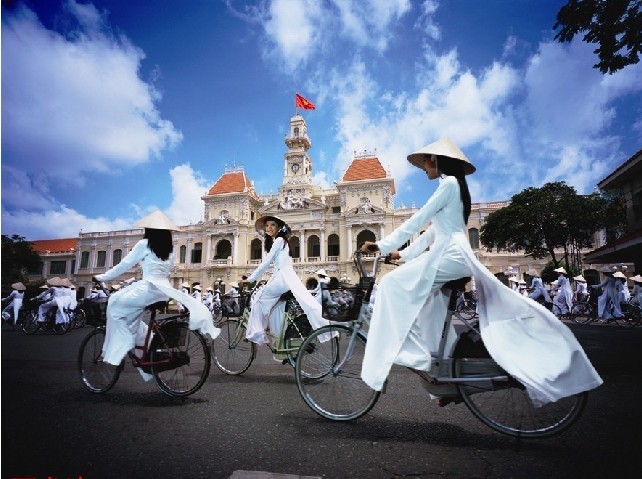‘Small countries’ starting to take on outsized role in int’l order

Although Vietnam has nearly 100 million population, it tends to act in a way that “small countries” do, so it is sometimes appropriate to think of it as “small state” in research.
In international relations, “big countries” often play a “core” role by shaping and leading the international order. However, the current world order is changing, and “small countries” have become an emerging force influencing international political and economic development. The increasing attention being given to “small countries” reflects growing expectations of a more equal and reasonable international order and refinements to the philosophies of social science disciplines, such as international relations.
Relativity
The concept of “small countries” in the study of international relations has not been standardized. It is a subjective concept that needs to be judged according to context. Wang Cungang, vice-president of the China Institute of Strategic Studies of Tongji University, said that in general, “small countries” are defined by hard-power indicators, such as land area, population size, economic output and military strength, but the definition does not tend to involve soft power indicators like international influence.
Wei Min, associate professor from the School of International Studies at Peking University, suggested that population size determines whether a country is “small.” In other words, the term small countries” refers to those sovereign states with a population size of less than 10 million. But he also said that in a specific study, the definition of “small countries” needs to be contingent on the situation. For example, when it comes to China, the Philippines and Vietnam, the Philippines and Vietnam are often seen as “small states,” but in fact the Philippines has a population of more than 100 million, and the population of Vietnam is nearly 100 million. However, Vietnam, and the Philippines tend to act in a way that “small countries” do, so it is sometimes appropriate to think of them as “small states” in research.
New angle
Wei said that studies concerning “big countries” are still the main focus of international research in China, and these receive more resources. In contrast, studies of “small countries” are still relatively scarce, and there is a dearth of high-quality research.
Wei said this situation needs to change and research on “small states” must be strengthened. First, considering the vast number of “small countries,” their international influence and external behavior are important variables in the development of international relations. The study of “small countries” is an important aspect of verifying and supplementing theories of international relations. Second, the experiences of “small countries” offer valuable lessons for “great powers” to learn from. Third, only by fully recognizing the universality and particularity of the thinking and behavior of “small states” can we better develop our relations with them and create a favorable external environment for our country, Wei said.
Gao Fei, a professor from China Foreign Affairs University, said that in Wallerstein’s “core-periphery” framework, a series of given concepts, such as “advanced,” “backward,” “developed,” “underdeveloped” and “developing” are used to describe the intuitive understanding of different countries. From this perspective, the inequality between countries is clearly exposed. “Now research on international relations faces a major change, that is, the rise of China has led to the parallel rise of a large number of developing countries,” Gao said.
Opportunity
The “Belt and Road” initiative has brought about an economic boom to a vast number of developing countries, which theoretically has changed the original “core-periphery” way of thinking. Gao said that more importantly, the initiative not only serves China but also benefits the broad masses of developing countries while promoting the establishment of a common and reasonable world order.
In order to play an essential role in today’s international relations, “small countries” should first adhere to an independent foreign policy to win the trust and respect of the international community, Wang said. Second, they have to occupy the moral high ground and gain enough moral leadership. Third, they must have the courage to put forward innovative ideas, contributing their unique wisdom to solving international hot issues and promoting reform of the international system. They also should master sufficient diplomatic skills and make good use of existing international rules. Last, they have to fully demonstrate their willingness to cooperate, especially with other small and medium-sized countries, with whom they can form flexible, timely alliances in the international political arena.
